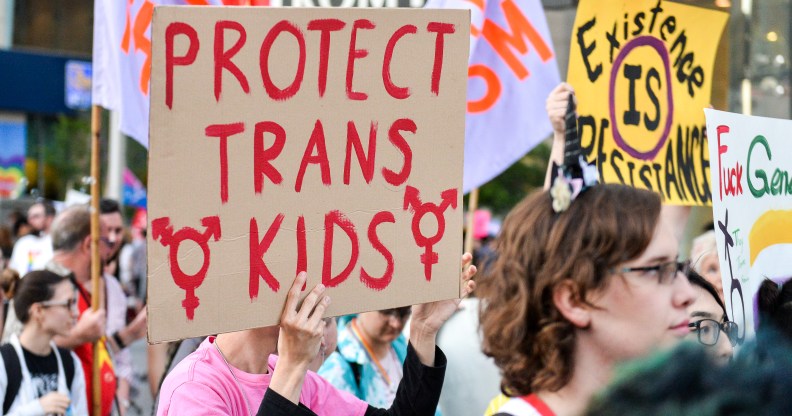London gender clinic seeing increasing number of non-binary patients

(Anatoliy Cherkasov/SOPA Images/LightRocket via Getty)
The UK’s only gender clinic for under 18’s is seeing an increase of young non-binary people, who now make up 11 percent of referrals to the gender identity development service (Gids) in London.
From 2018-2019 Gids received around 2,500 referrals – a very small increase from the previous year, compared to the steep increases in referrals seen in the previous three years .
At a press conference on July 17, Polly Carmichael, director of the Gender Identity Development Service (GIDS) in London, said, “Some young people are challenging the stereotypes of having to fit into a male or female box.”
“Some people are saying sometimes I feel more male, and sometimes more genderqueer.”
The clinic, which is part of the Portman and Tavistock NHS Trust, says that the growing number of people who are non-binary are not necessarily seeking any physical transition, including hormone treatment.
This fits with the bigger picture seen by the clinic, according to Carmichael, which is that only around 45 percent of people referred to Gids eventually undergo physical intervention.
This number falls to 25 percent of people who were younger than 12 when they were first referred to Gids.
Responding to criticism from some that the clinic encourages people to transition too quickly, and from others that the process is too slow, Carmichael said that it’s a case of giving each person “time and space to explore.”
“I can still not predict with absolute certainty what pathway a young person is going to take,” said Carmichael. “It’s a process of exploration.”
Gender services in the UK most ‘cautious’ in world
Children with gender identity issues go through one of the most “cautious and painstaking” processes in the world when accessing healthcare from Gids on the NHS, Carmichael and another colleague, Dr Bernadette Wren, added.
Wren, head of psychology at NHS England’s gender identity development service (Gids), said that the UK’s gender-identity development service for children and teenagers was internationally seen as one of “the most cautious, painstaking and thoughtful” in the world.

